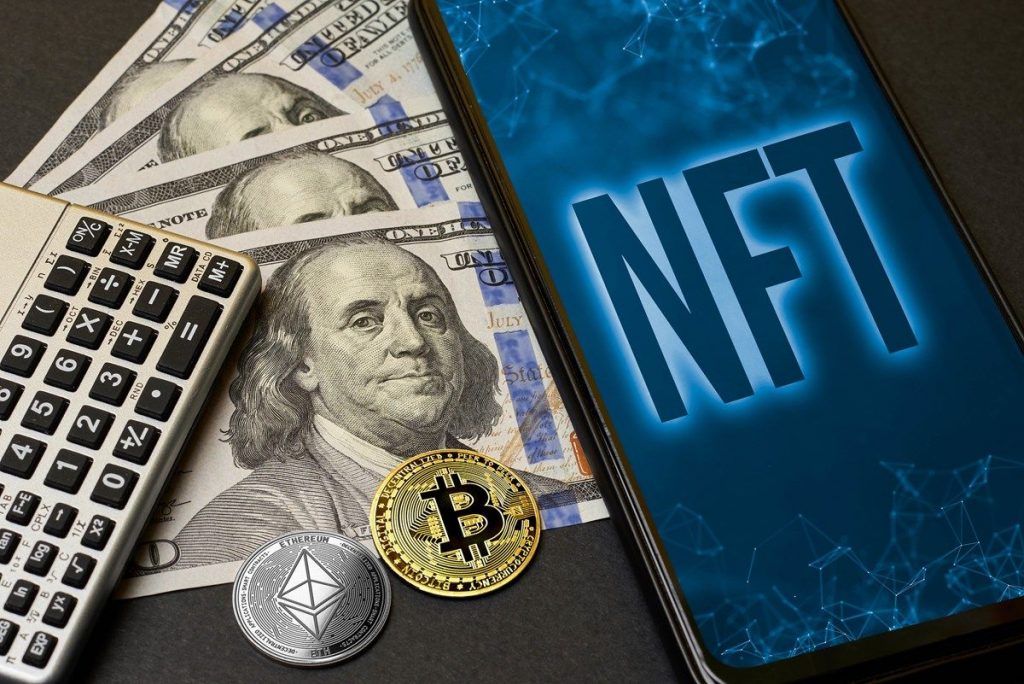Money Laundering in the Metaverse: NFTs, DeFi 2023


In Brief
The study found that the most popular method of Money Laundering was through Non-Fungible Tokens (NFTs).
Money laundering in the Metaverse is a complicated issue with no easy solution.
A recent study found that 17 million Ethereum addresses are being used for Money Laundering. This is a surprisingly large number, considering that Ethereum has only been around for a few years. The study found that the most popular method of Money Laundering was through Non-Fungible Tokens (NFTs). NFTs are digital assets that are not interchangeable. Each NFT is unique, and it can be used to represent real-world assets, like art or collectibles.

Since last year, more and more thieves have been using DeFi protocols to launder their money. In 2021, Defi protocols received 17% of all cryptocurrency transferred from illegitimate addresses, up from 2% in 2020.
NFT sales also reached over $25 billion in 2021, with individual devices selling for as much as $90 million. However, high-profile frauds in 2022 — including a $600 million theft of NFT gaming business Axie Infinity in March and $2.8 million worth of NFTs taken from the Bored Ape Yacht Club’s Instagram account in April — have caused market concern.
With the lack of KYC verifications and AML screening methods, money laundering has become a large problem in web3.0 platforms. In this article, we will go over the causes of money laundering as well as some solutions to help prevent it.
What is Web 3.0? How can it help facilitate money laundering activities?
Web3.0 is a decentralized token economy that uses blockchain technology and doesn’t require trust or permission from anyone. Currencies and NFTs that use the same tech will become more popular as a result.
Money laundering will be more difficult to track and manage because of the decentralized nature of web3.0. Money launderers will be able to take advantage of this by using multiple wallets and addresses to make it harder to trace their activities.
One way to help prevent money laundering is by knowing your customers (KYC) procedures. By requiring customers to verify their identity, businesses can screen for red flags that may indicate money laundering activity. Another way to prevent money laundering is by using advanced analytics to track patterns and transactions that could be suspicious.
While web3.0 does present some challenges for preventing money laundering, there are also opportunities to use its features to our advantage. By being aware of the risks and implementing some of the solutions mentioned above, we can help make web3.0 a safer place for everyone.
Why are NFTs attractive for Money Laundering?

NFTs are essentially bearer instruments, meaning that whoever holds the NFT owns the asset. This makes them attractive for Money Laundering because there is no need to go through a financial institution to transfer ownership. NFTs can also be easily divided into smaller pieces, making it easier to launder small amounts of money.
Another reason why NFTs are attractive for Money Laundering is that they can be used to represent real-world assets. This makes it difficult for authorities to trace the origins of the Money Laundered funds.
It’s now easier than ever to conduct financial transfers covertly, thanks to blockchains. For these reasons, and in accordance with the US Financial Crimes Enforcement Network (FinCEN), the “Emerging Digital Art Market” presents a high risk of money laundering and financial crime.
According to a recent study, there is an estimated $6 billion worth of Money Laundering taking place on the Ethereum blockchain. This is a surprisingly large number, considering that Ethereum has only been around for a few years. The study found that the most popular method of Money Laundering was through Non-Fungible Tokens (NFTs).
How can Money Laundering in the Metaverse be countered?
The procedures for money laundering in the metaverse are complicated and happen quickly, often crossing multiple borders. This makes it difficult to detect using current methods.
Because of this, it’s essential that current AML rules be updated and cutting-edge technology like artificial intelligence and machine learning is utilized. Transactional monitoring and identification verification, for example, may both be done with artificial intelligence in the Metaverse.
More research is needed to understand how best to use these technologies in the Metaverse. In the meantime, businesses should consider implementing them as part of their AML compliance program.
How IDcentral can ensure compliance in the Metaverse
IDcentral’s eKYC and KYX solutions confirm identity, age, and documents via a digital process. This allows IDcentral to effectively detect and prevent money laundering in the Metaverse, particularly with the use of non-fungible tokens (NFTs). By implementing a robust KYX solution that leverages machine learning technology and advanced blockchain analytics tools, IDcentral can identify suspicious activity and protect users against fraud.
In addition to its eKYC and KYX solutions, IDcentral also provides access to decentralized finance (DeFi) tools that enable users to manage their assets in the Metaverse securely and responsibly. With DeFi, users can enjoy greater flexibility, transparency, and control over their funds than ever before. By providing these services, IDcentral is helping to ensure compliance and security in the growing Metaverse ecosystem.
Conclusion
Money laundering in the Metaverse is a complicated issue with no easy solution. However, by being aware of the risks and implementing some of the solutions mentioned above, businesses can help make the Metaverse a safer place for everyone.
Related articles:
- Top 5 NFT Staking Projects for 2022: Pros and Cons
- Top 15 NFT & Crypto Marketing Agencies for 2022
- How to Store NFTs: The Ultimate Guide 2022
- Fungible vs Non-Fungible Tokens (NFT): What is the Difference?
Disclaimer
In line with the Trust Project guidelines, please note that the information provided on this page is not intended to be and should not be interpreted as legal, tax, investment, financial, or any other form of advice. It is important to only invest what you can afford to lose and to seek independent financial advice if you have any doubts. For further information, we suggest referring to the terms and conditions as well as the help and support pages provided by the issuer or advertiser. MetaversePost is committed to accurate, unbiased reporting, but market conditions are subject to change without notice.
About The Author
Ken Gitonga is passionate about writing. His work involves writing crypto articles on SEO, TAs, News writing, Web3 articles, crypto price prediction, and white paper drafting. Ken is a content writer and marketer. He has worked in the SEO and content marketing industries for over 3 years and has helped businesses grow their online presence and traffic.
More articles

Ken Gitonga is passionate about writing. His work involves writing crypto articles on SEO, TAs, News writing, Web3 articles, crypto price prediction, and white paper drafting. Ken is a content writer and marketer. He has worked in the SEO and content marketing industries for over 3 years and has helped businesses grow their online presence and traffic.















































